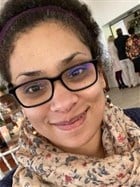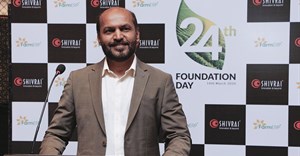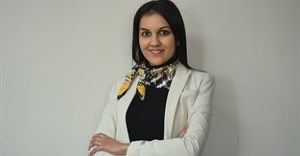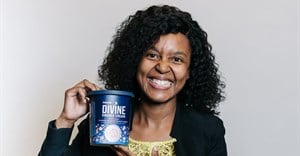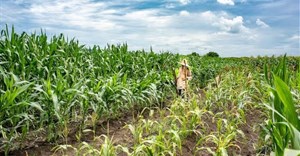Trending




 Sabre EMEA 2024 Awards: Razor PR, Retroviral top SA agenciesDanette Breitenbach
Sabre EMEA 2024 Awards: Razor PR, Retroviral top SA agenciesDanette Breitenbach
Elections 2024
#EntrepreneurMonth: How AI startup ask-jean is disrupting the SA wine tech industry
The app also gives wine farms the opportunity to also add their wines to the app to showcase their selection to users.

We chat to co-founder Odette Bester as she shares more on the ask-jean start-up journey…
Tell us about ask-jean’s story – why, when and how did it all start?
ask-jean was founded by Jan Thomas in 2018. Jan wanted to revolutionise the wine industry by not only democratising wine but solving the challenge of choice that people are often faced with when buying a bottle for a dinner party or a night in. Not knowing what wine to choose meant people stayed within their comfort zone, went on someone’s recommendation or simply liked the label.
Jan thought, what if he could provide people with their own personal recommendations based on their personal preference so that, when they purchased wine they could ensure it was something they liked. Jan believes that this can be also be applied to coffee, beer, champagne, gin and more. And that’s where the story began... Jan started building a test version of the app he envisioned with the team at ask-jean.
Since then, ask-jean has been in beta stage, the team has started running wine tastings to collect data and get user engagement. The success of these wine tastings has ramped up the development of the app which hopes to launch later this year.
ask-jean has also started partnering with wine farms who see the benefit of the insights this app can provide as they better understand their customers and their preferences.
Why the name, ask-jean?
ask-jean was named after Jan's sister Jean. She is who he turns to for valuable advice and input and so he thought, just like she suggests and gives input into his life, our app suggests and gives input on wine choices and recommendations.
Why a voluntary data hub?
Part of ask-jeans core identity is sustainability and responsible data usage. With the recent data policy regulations ask-jean asked the question: "How do we use data to inform our algorithm so we can build a good product but also ensure we respect our customer's data?" We want to use data to solve problems not exploit users. Therefore any data provided to us by the user is completely voluntary and we only leverage the data they feel comfortable sharing with us.
The user is always in control, which is why we refer to it as a voluntary data hub.
Why is it important to bridge the consumer-business gap?
The wine industry has developed an exclusivity reputation over the years. There’s a belief that the more stickers and the more expensive the wine is, the more you’ll enjoy it. But, the truth is, there are lots of wines out there that don’t have to break the bank, that you’ll enjoy if you only knew what’s out there. Our web-app teaches users about themselves while opening up their selection. We focus on recommending wine you’ll enjoy. What we do is break down that 'wall of wine' consumers face when they are at the shop and/ or a restaurant.
As we’ve engaged with more and more wine farms, we’ve realised they don’t have the data they need to get to know their consumers. And if they don’t know their consumers they can’t serve them with the products they want and like.
For example, a recent study in Stellenbosch highlighted that 80% of wine drinkers in South Africa are black and yet this market goes largely unserved in the wine industry. ask-jean wants to bridge this gap and make wine more accessible to all. We’re doing this in many ways, one of them is ensuring that our app has been developed for multiple languages across South Africa. So far our app has been developed in Zulu, Xhosa and Sotho.
How does the wine rating process work?
Our app is a mixture of Spotify and Tinder. You simply swipe like or dislike on a bottle of wine (instead of a rating system we focus on whether you like a wine enough to buy it or not – it’s as simple as that). As you rate the wine in this way, our app starts to develop a more and more refined personal preference, learning what you like and don’t like and ensuring it recommends what you’ll enjoy.
Which wine farms are a part of the ask-jean wine app? How can other wine farms join?
Simonsig, Delheim and Stellenbosch Hills have partnered with us already, which we’re excited about!
If other wine farms are interested in finding out more, learning about how they can benefit from our web-app and get their wines uploaded onto our database, they can contact ask-jean co-founder Odette Bester.
Wine farms get their own logins where they can upload new wines and get access to live data about their products.
One of the benefits is that it costs nothing for wine farms to sign up. All we’re asking for at this stage, is wine from the wine farms in order for us to continue running wine tastings so that we can build up our data and keep teaching jean (our algorithm). In return, ask-jean provides credit to the farms to use on the site to bid for placement (to users searching for wines that match their personal preferences). Users get recommendations for food, and in general (this gives estates the opportunity to be presented to the customer twice).
Are there any registration costs involved?
No, we don’t believe in registration costs so users and wine farms get free access
What is the most valuable lesson you’ve learnt on your startup journey?
If you want to go far, go together. That’s our motto, which is why we want to partner with other wine tech start-ups to offer multiple solutions in the industry. We know there are a lot of smart people out there solving everything from climate challenges, production, crop health and more through technology. We want to work with those people and not try to do everything ourselves.
What has been your proudest achievement?
Customer feedback when they see their favourite wines in the recommended list.
What are some of the challenges you have faced – how are you overcoming them?
Funding is always a huge challenge. We’re always looking for investors that see the value in data and how it can be collected voluntarily by users that want to engage with our app, see the value this can have in the retail space and believe machine learning can deliver rich, accurate data that can be used responsibly.
Where would you like to see ask-jean in the next five years?
We’re looking to expand into various retail sectors like coffee, gin, beer, etc. We’re also looking to expand overseas into areas like China, Europe and the United States.
What is your ultimate vision?
To solve the decision-making process users face across retail by identifying personal preferences
Any advice for start-ups out there?
Jan and I teamed up because we realised the smartest thing we can do is hire for our weaknesses. So we built a team that compliments each other and embrace both strengths and weaknesses in one another. We’re not afraid of our weaknesses. We acknowledge them and hire people that complement our own, to build a solid team.
Ask-jean is still in the beta testing stage with users already engaging with the app through wine tasting events that have been hosted across Cape Town. To learn more about these wine tastings and how to join their beta group contact them via the website.



